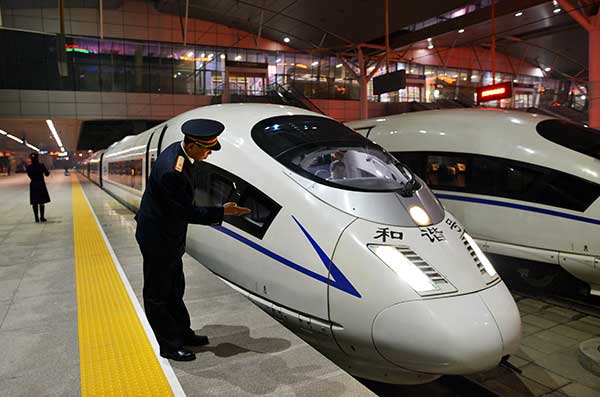A senior health official has called on governments at all levels to help relieve the burden on families wanting to have a second child.
Cui Li, vice-minister of the National Health and Family Planning Commission, said on Tuesday that an array of departments need to introduce measures to help resolve issues that have arisen with the introduction of the second-child policy in January 2016.
Health authorities have been rolling out policies nationwide since family planning rules were relaxed, including improvements to maternal care facilities.
However, Cui warned that families will need help from other government departments to handle some problems, including increased expenses, maternity leave and a shortage of kindergartens.
“We hope through the efforts of governments at all levels … some tangible policies can be made in areas such as taxation and social security to promote the implementation of the policy so that those who want to have a second child can realize their dream,” she said.
“We will focus on problems that emerge as a result of the policy and work to solve them with other departments,” she said, adding that the second-child policy has already yielded positive results.
Cui said 18.7 million babies were born in China last year, up by 11 percent on 2015, with 45 percent born to women who already had a child.
Over the same period, the maternal mortality rate fell from 201 per 1 million births to 199, according to data released by the commission last month, despite the fact half of the 90 million women who became eligible to have a second child are over 40-putting them at a higher risk of complications during pregnancy.
A report released in December by the All China Women’s Federation and Beijing Normal University also called for more investment in public services to make having two children easier and more affordable.
The report included a survey of 10,155 couples in 21 cities who already have a child that found 53 percent did not want a larger family. The biggest concerns were education resources, healthcare services, the environment and the financial burden.
Cui added that the commission has received a lot of advice from the National People’s Congress, the top legislature, and the Chinese People’s Political Consultative Conference, the top advisory body, on implementation of the second-child policy, including measures to improve pediatric services.
The commission received 1,512 suggestions on various healthcare issues from the two bodies last year, she said.
Xi Yanchun, a spokeswoman for the State Council Information Office, added that ministries and departments under the nation’s Cabinet responded to 7,873 suggestions from the NPC and 3,862 from the CPPCC last year.
They included economic development, poverty alleviation and environmental protection proposals, Xi said.
read more


